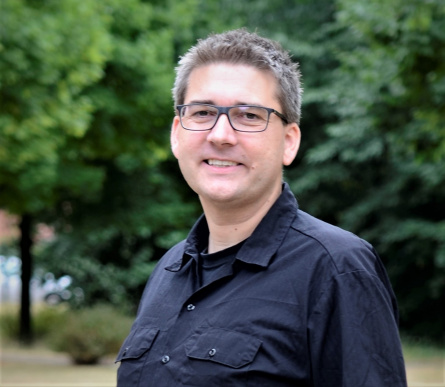
The aim of your book is to analyse the "architecture of arguments in global social governance". Put simply, you proceed in two steps: First, you map the field (which IOs are engaged in which social policy issues?), then you examine the discourse (which strategies do IOs use to try to make their ideas and concepts heard?). Let's start with the first part: About 100 years ago, the field was small; with the ILO, there was exactly one IO that dealt with social policy and that still exists today. How has the field expanded and differentiated since then?
Dennis Niemann: That's right, the general trend that there have been more and more international organisations since the end of the Second World War also applies to social policy. Surprisingly, there are some central actors that cover almost the entire spectrum of social policy. The OECD, the ILO and the World Bank pop up again and again and shape various areas. But UNESCO, the UN's educational, scientific and cultural organisation, is also active in many social policy fields. However, we also observed that the overall population of social policy IOs became more diverse over time. Not only the large, well-known IOs are involved, but also many other IOs, some of them regional, have appeared on the scene to cover social policy issues: e.g. ASEAN, African Union or Mercosur.
Over time, many IOs have added social policy issues to their portfolio or expanded their social policy portfolio to other fields. Why is that?
Dennis Niemann: There are two main reasons for this. On the one hand, the IOs were actively mandated by their member states to deal with certain social policy issues - even though historically they did not have much expertise in this area. For example, the OECD, whose thematic focus was on economic policy, was commissioned in the 1980s by some member states to develop an instrument to measure national educational performance. The result was PISA and today the OECD is a central IO in international education policy. In general, education policy is particularly densely populated with 30 active IOs. On the other hand, this thematic expansion was also due to internal organisational factors, i.e. the IOs proactively expanded their portfolio. This happened, for example, because it enabled them to better fulfil their actual core mission.
We also should not neglect the fact that certain policy fields were discursively expanded to include a social policy component. For example, the interpretation of water as a natural resource has expanded to include a social policy component: water and access to it is a social good.
Let's move on to the second part of your analysis, the discourses. In the social policy areas you can find a lot of active IOs. Do they cooperate or compete with each other?
Dennis Niemann: Both. Of course, the fundamental views of certain IOs on priorities in social policy are quite diverse and partly bipolar. While one side prefers economic efficiency, other IOs want to see social cohesion guaranteed first and foremost. These two perspectives are often difficult to reconcile. But it is not impossible. We see that pragmatic approaches are taken in numerous initiatives and that IOs from different "families" cooperate productively in specific projects. For example, the World Bank, OECD and ILO have developed a common approach in family policy since 2008. Something similar can be observed in areas of youth unemployment and the migration of health care workers.
You write that the tendency to cooperate has increased in the last 10 years or so. Why is that?
Dennis Niemann: Well, I think that all kinds of IOs are increasingly able to combine their programmatic points of view - perhaps due to the rather basic cooperation projects that have been started. We should not forget, however, that in social policy, different ideas often continue to compete; perhaps just no longer in fundamental opposition. The fact that certain values have become more universal and valid certainly also plays a role in increased cooperation. A catalyst for this were the Millennium Development Goals and the Sustainable Development Goals of the UN. They established certain normative reference points for IOs in social policy, which increasingly guide their arguments and actions. And a common basis of values makes cooperation much easier.
Some IOs are dominant in the social policy discourse. What factors cause an IO to dominate a field or at least to take an influential position?
Dennis Niemann: First and foremost, probably timing and resources. When IOs hit the zeitgeist, they enjoy an additional legitimacy that enables them to determine social policy discourses. IOs that also have the necessary resources to implement their programmatic guidelines can obviously have a more influential effect than IOs that lack these resources to generate outreach.
Finally, let's take a look at the future: The influence of IOs on social policy has increased in the past. Will this trend continue or even reverse in some areas?
Dennis Niemann: My crystal ball may be a little foggy on this, but in principle we have always seen an increase in the importance of IOs in social policy in the past. At the moment I can't think of many reasons that would cause a reversal of the trend. What I could imagine, however, and what is also emerging to some extent, is that individual IOs will lose significance and others, e.g. the big players, will become even bigger. Likewise, the discursive camp formation could become more pronounced again. In general, however, one should not ignore the social policy outcomes. As long as the IOs "deliver", i.e. can point out solutions to socio-political problems and help shape them, they will continue to be central actors in this field and will still present us with many exciting research tasks.
---
Read the full book (open access):
Kerstin Martens, Dennis Niemann, Alexandra Kaasch (eds.)(2021): International Organizations in Global Social Governance. Palgrave Macmillan. Cham
Contact:
Dr. Dennis Niemann













